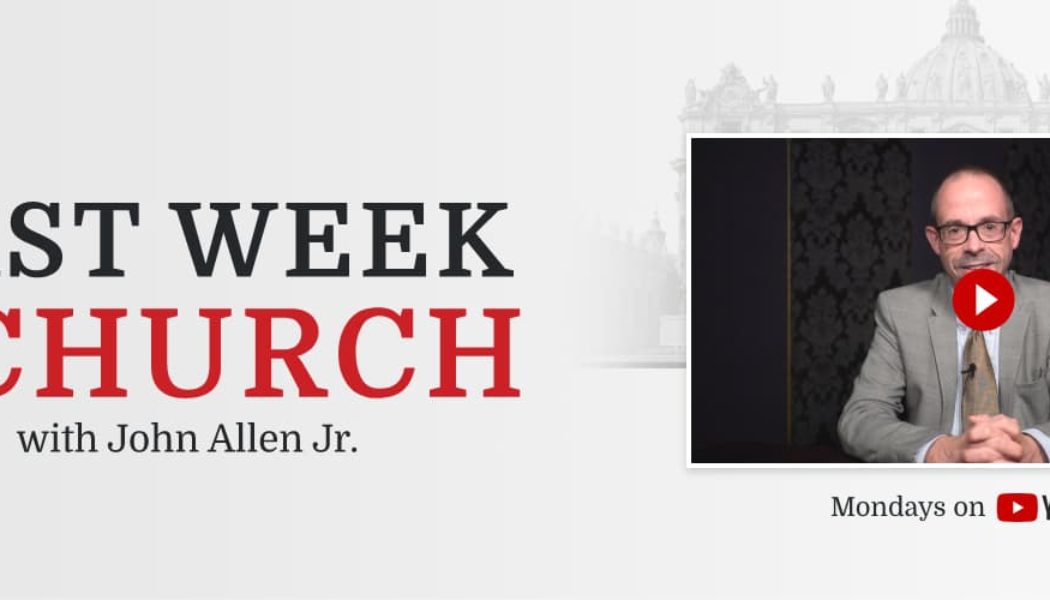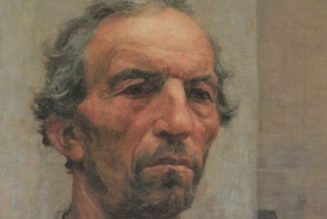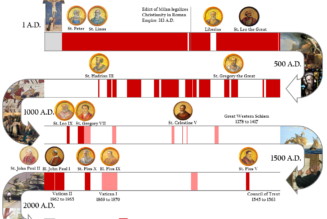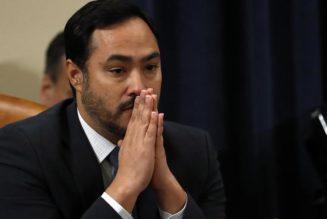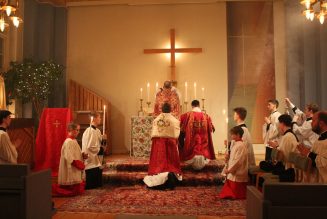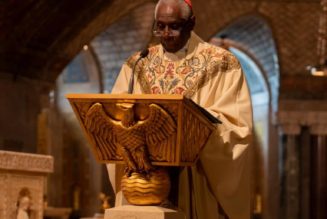ROME – In many ways, Pope Francis had a great weekend. His native Argentina defeated their hated rivals Brazil to win the Latin American soccer championship on Saturday, and the next night his adopted home of Italy triumphed over England for the European title in a thrilling game that ended in a shootout.
His work week, on the other stand, started on a slightly more sour note. Monday brought news that his stay in Rome’s Gemelli Hospital following surgery last Sunday for a colon condition is going to last a bit longer than expected. Originally the Vatican said he was expected to remain a week, which was up on Sunday, then said Monday that he’ll be there a “few more days” in order to “optimize medical and rehabilitative therapy.”
So far, most people have seemed willing to take the Vatican’s soothing assurances about the pope’s condition at face value, in part because when we’ve seen him at the hospital he seems pretty good – yesterday, for instance, he delivered his regular Sunday Angelus address, and we also got video Monday of him making the rounds in a wheelchair to greet medical personnel and other patients.
In all honesty, the extra few days may not be really “extra” in the first place. It was always a little silly for the Vatican to create the expectation that Francis would come home on a certain date, since anyone who’s ever been hospitalized knows doctors just don’t roll that way. They’ll say things like, “Maybe you can leave tomorrow or the next day, but let’s see how your next tests turn out first,” because everything depends on the uncertain pace of individual recovery.
Nonetheless, this is the first significant time in the Francis papacy when an optimistic statement from the Vatican about the pope’s health has been disproven by reality, which makes one wonder: Is this the part where we panic?
In most papal health scares, a moment comes when people become convinced that things are actually much worse than the Vatican is saying, and that the pope is either about to die or become significantly incapacitated. That conviction typically spawns dark theories about who’s really in charge and what agenda is being pursued.
Usually that speculation begins and reaches its zenith in the Italian press, because of the cultural truths about this country is that Italians have never seen a conspiracy theory they’re not prepared to believe. They even have a word for it, dietrologia, meaning the study of what’s going on behind closed doors.
Over the past month, most Italians have had precious little mental space for anything other than their national team’s remarkable run through the Euro2020 tournament, but now that the competition is over and the pope’s still in the hospital, perhaps some of that theorizing will begin in earnest.
If we do reach the panic stage over the next few days, here’s one prediction for an issue it will resurface: A decades-old, still-unresolved debate over papal incapacitation.
As is well known, the Code of Canon Law makes no prevision for removing an incapacitated pope from office. There are only two ways recognized under the code for a papacy to end: Death or free, voluntary resignation, which has traditionally been held to mean that a pope must be conscious and capable of a free, independent decision at the time it’s made.
Clearly St. Paul VI foresaw the dangers of such a requirement. We know he wrote a secret letter in May 1965, just two years after he was elected, entrusting the Dean of the College of Cardinals along with the cardinals of the Roman Curia and the Cardinal-Vicar of Rome with declaring the office vacant “in case of infirmity, that it is presumed to be incurable, or of long duration, and which prevents us from sufficiently exercising the functions of our apostolic ministry, or in the case of another serious and prolonged impediment equally representing an obstacle.”
However, most canonists at the time the letter came to light in 2018 said that it had it ever been invoked, its legitimacy was open to question since, for all we know, the pope might have changed his mind in the years since he wrote it.
In part, that lacuna in the law reflects earlier historical eras in which people generally didn’t linger a long time after being incapacitated. Today, of course, medical technology is such that people in vegetative states or other chronically incapacitated conditions can live for long periods, even decades.
In part, too, the lack of any provision for removing a pope is a product of bitter historical experience, which suggests that if such a provision were to exist, it might be exploited for political or personal ends to get rid of popes somebody doesn’t like. After all, it’s not a great leap from “he’s not doing what I want” to “he’s clearly out of his mind.”
During the late St. John Paul II years, as his Parkinson’s disease became steadily worse and the pope became increasingly limited and frail, concern over the incapacitation scenario was very much in the air. At the time, many canon lawyers quietly acknowledged the law probably now needs some mechanism for declaring the papacy vacant, but said it would have to be the work of a future papacy because to bring it up then might have seemed like they were trying to rush John Paul’s exit.
Many experts believe what’s needed is a system in some entity, probably the College of Cardinals, is invested with the authority to declare a sede vacante, meaning that the pope’s seat is vacant, under certain rigorously defined circumstances. The vote of the college likely would have to be unanimous, or very close to it, to any eliminate any perception of political motives in the result.
To date there’s been little talk about the incapacitation problem under Pope Francis, in part because he seems so vigorous, and because a colon condition is hardly the same thing as Parkinson’s. Yet he is an 84-year-old man, and, especially at that age, anything’s possible.
It remains to be seen if this bump in the road on Francis’s recovery produces a panic of sufficient force to restart the conversation – or, perhaps even more unlikely, if the Vatican for once tries to defuse the bomb before it goes off, and decides to address the question even in the absence of a full-blown panic.
Follow John Allen on Twitter: @JohnLAllenJr
Join Our Telegram Group : Salvation & Prosperity
